02 Nov 2020 - {{hitsCtrl.values.hits}}
Cluster could be bigger than Minuwangoda and Peliyagoda
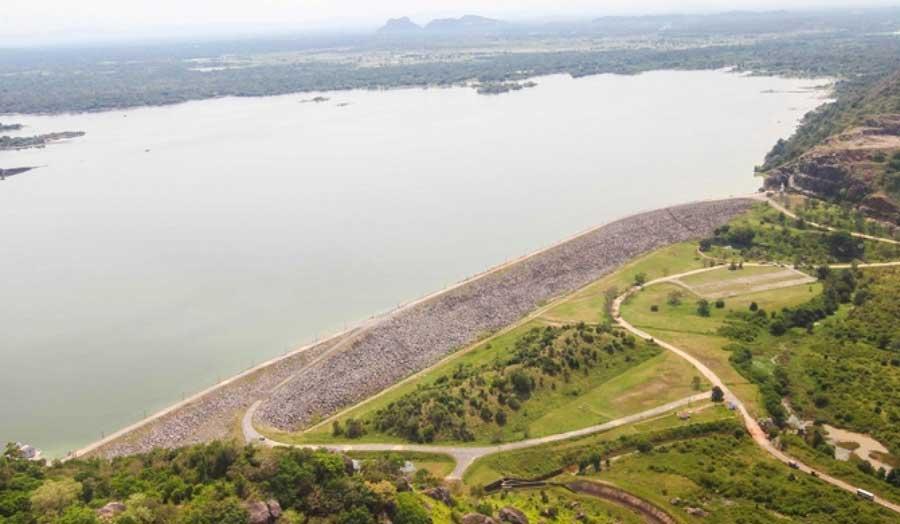
Maduru oya
- Health authorities had ignored freshwater-fishing communities
- Fish from Maduru Oya are distributed to Melsiripura – Ambanpola
- Also transported to Chilaw, and from there to Matara
- Only a driver, helper of lorry transporting fish to Ambanpola, and three sellers who bring fish from Valaichchenai faced random PCR tests
The second wave of COVID -19 has already spread across Sri Lanka. Despite certain claims that it has not yet reached pandemic levels, the discovery of COVID-19 patients from around the country indicates the 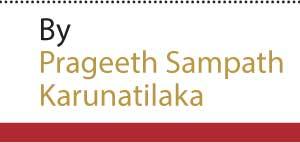 second wave could very well be spreading among the community. Importantly, new COVID-19 patients found daily are not from quarantine centres, but from society. This has prompted the Government Medical Officers’ Association (GMOA) to warn the country that it is on the verge of a community spread.
second wave could very well be spreading among the community. Importantly, new COVID-19 patients found daily are not from quarantine centres, but from society. This has prompted the Government Medical Officers’ Association (GMOA) to warn the country that it is on the verge of a community spread.
According to doctors, this second wave is likely to spread fast. Most cases are asymptomatic and show a faster virus growth within the body. Yet, some people still do not consider COVID-19 as deadly, and the risk of a cluster bigger than the Minuwangoda and Peliyagoda clusters emerging is at hand. One district vulnerable to such a cluster is the Polonnaruwa district.
" When the Peliyagoda cluster emerged, fishermen from Chilaw unable to go out to sea, moved to fishing in Maduru Oya."
Nearly 200 families in the Polonnaruwa district engage in freshwater fishing. They initially came from Chilaw and the Northern Province, and began freshwater fishing at a time when the local people believed killing fish in tanks was sinful. However, with time, people in Polonnaruwa too took to freshwater fishing.
During the war, fishermen from Chilaw and the North could not engage in their trade. So they started fishing in major tanks in the Polonnaruwa and Anuradhapura districts. Some fishermen married women from Polonnaruwa and permanently settled there. They also received voting rights from the district. Others did not settle down permanently, but only engaged in fishing.
After the war, some fishermen returned to their homes while others remained in Polonnaruwa. During the off season, when fishing at sea was not possible, these fishermen returned to Polonnaruwa and engaged in fishing in Maduru Oya, Parakrama Samudraya, Pimburaththewa, Minneriya and so on. When the Peliyagoda cluster emerged, fishermen from Chilaw unable to go out to sea, moved to fishing in Maduru Oya. Some 80 families surrounding Maduru Oya are currently engaged in fishing, and they maintain contacts with the fishing community in Chilaw.
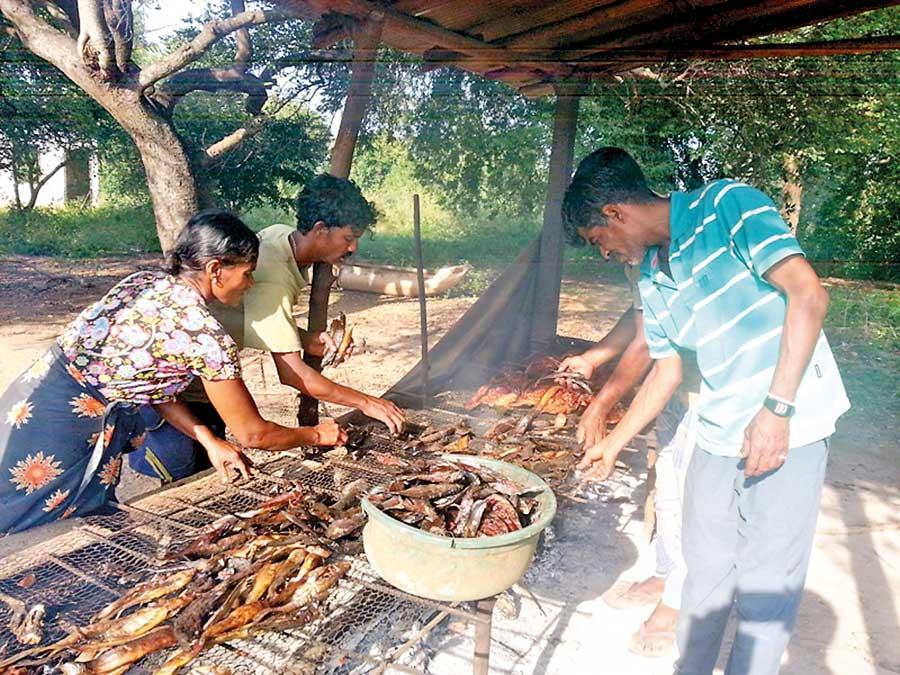
Nearly 200 families in the Polonnaruwa district engage in freshwater fishing.
Fish from Maduru Oya are distributed to Melsiripura - Ambanpola, and from there to Kurunegala. They are also transported to Chilaw, and from there to Matara. Around 80 fish vendors in Polonnaruwa sell fish throughout the district. There are about 40 stalls which sell fish in Polonnaruwa. Eight lorries distribute fish outside the district. The contacts of those who travel in these lorries are unknown.
According to M. A. U. Kumara who heads the Maduru Oya Fishermen’s Association and is the former chairman of the Polonnaruwa district and National Fisheries Federation, COVID -19 has already spread throughout Polonnaruwa. He said health authorities had ignored the freshwater fishing communities. He added that Polonnaruwa district health authorities appeared unconcerned about the risk of COVID -19 spreading in the district, and charged the information they possessed was inaccurate.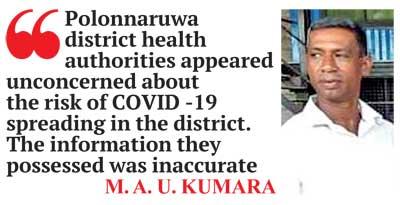
In addition to the 90 fishing families near Maduru Oya, there are 70 fishing families in the Polonnaruwa district and around 80 fishermen who come from Chilaw, for fishing. These contacts are still maintained, and last week, people from the Maduru Oya fishing community went to a funeral in Chilaw. They had not informed health authorities of this visit, and no PCR tests were done on them.
Furthermore, fish from Valaichchenai is brought to Dimbulagala and Welikanda. Traders from the Valaichchenai fisheries harbour transport fish to Peliyagoda. The Valaichchenai fisheries harbour was declared an isolated area to prevent the spread of COVID -19. But earlier, fish vendors from Maduru Oya had gone to Valaichchenai to buy fish. Random PCR tests have been done among fish vendors who went to Valaichchenai, and results of these are pending. But these vendors still reportedly go to Valaichchenai to buy fish, and are engaged in selling them.
On October 27, PCR tests were done on 150 people. Freshwater fishermen have undergone these tests not due to requests from health authorities, but because the Fishermen’s Association asked them to do so. It is unfortunate that health authorities failed to include the freshwater fishing community when selecting random samples for PCR testing.
" If COVID -19 has already spread across Polonnaruwa, a cluster of 7,000 - 8,000 could emerge from there"
Since people transport fish from Chilaw and Valaichchenai, and COVID -19 patients were found in the Ambanpola fish market, more attention should have been given also to freshwater fishermen. But this has not been the case. Reportedly only a driver and helper of a lorry transporting fish to Ambanpola, and three sellers who bring fish from Valaichchenai had faced the random PCR tests. Health authorities have failed to pay attention to others.
Moreover, nine fish vendors who travel from Valaichchenai on motorbike enter the Dimbulagala division daily. They bring around 50 kg of fish, which they sell to some 100 families. So they deal with about 900 families daily. These vendors also allegedly drink alcohol and smoke cigarettes and ganja with people in Dimbulagala. If there are COVID -19 patients in Valaichchenai, there is a risk of it spreading through Polonnaruwa through these vendors. According to the head of the Maduru Oya Fishermen’s Association, if COVID -19 has already spread across Polonnaruwa, a cluster of 7,000 - 8,000 could emerge from there.
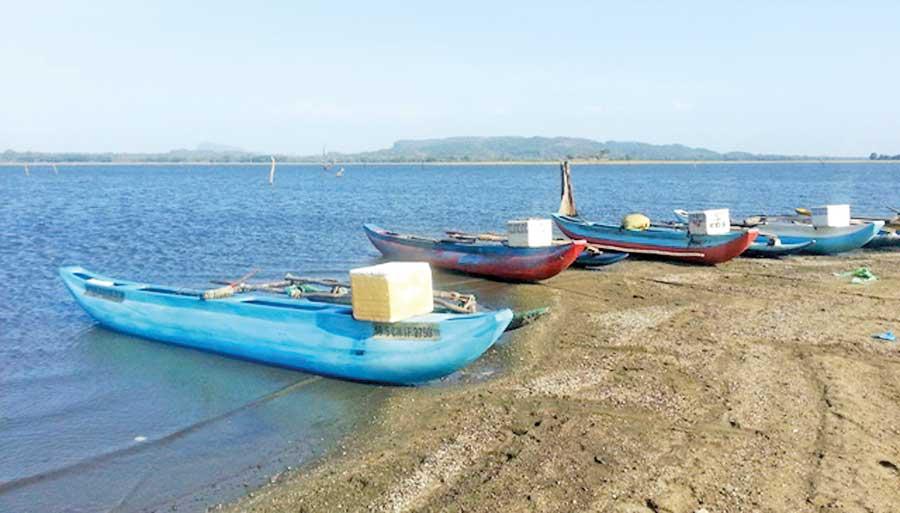
Pimbuththewa tank
Additionally, paddy is being harvested in Polonnaruwa these days. People from Valaichchenai come to work in paddy fields without following any health precautions. During the last few days, many had come to Polonnaruwa from Valaichchenai for reaping paddy. When reports surfaced about COVID -19 patients in Valaichchenai, they had been sent back to Valaichchenai secretly. Some are still reportedly remaining in Polonnaruwa. If anyone of them had contracted the virus, it could spark another outbreak, the Fishermen’s Association’s head added.
The question remains as to how diabetic patients, cancer patients, pregnant mothers, and elderly people in Polonnaruwa will be affected by this. If freshwater fishing communities in Polonnaruwa who have been disregarded by health authorities, and have already contracted the virus, how will this impact the whole district and country? 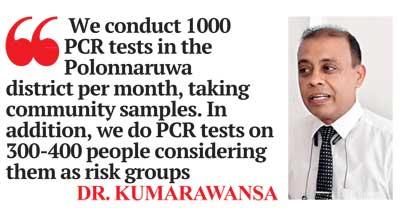
Commenting on the situation, Polonnaruwa District Regional Director of Health Services, Dr. W. H. W. S. Kumarawansa admitted freshwater fishing communities had not been their concern, and pledged to conduct PCR tests on them after assessing the situation. He further said: “PCR tests are conducted on lorry drivers at checkpoints in Habarana. Lorries carrying fish from Chilaw, Colombo, Trincomalee are not allowed to come. However, our concern was not on the freshwater fishing communities until certain parties informed us. We will pay particular attention on them from now onwards. We did PCR tests on lorry drivers and helpers who bring fish from the outside. We discussed with the District Secretary and agrarian officers about the decisions to be taken with regards to people who come from Valaichchenai to work in paddy fields. We will conduct PCR tests on freshwater fishermen after investigating.”
He added: “Our concern was on two Covid-19 patients found in Polonnaruwa. One was from the Brandix cluster, and the other one was from the Peliyagoda cluster. There was one more patient. We conduct 1000 PCR tests in the Polonnaruwa district per month, taking community samples. In addition, we do PCR tests on 300-400 people considering them as risk groups. Garment workers, rice-mill workers, tipper truck drivers, lorry drivers and helpers who transport rice to Colombo, drivers and helpers who have contacts with the Manning market, lorry drivers and helpers who bring goods to Polonnaruwa from Pettah, three-wheeler drivers and safari drivers belong to these groups.”
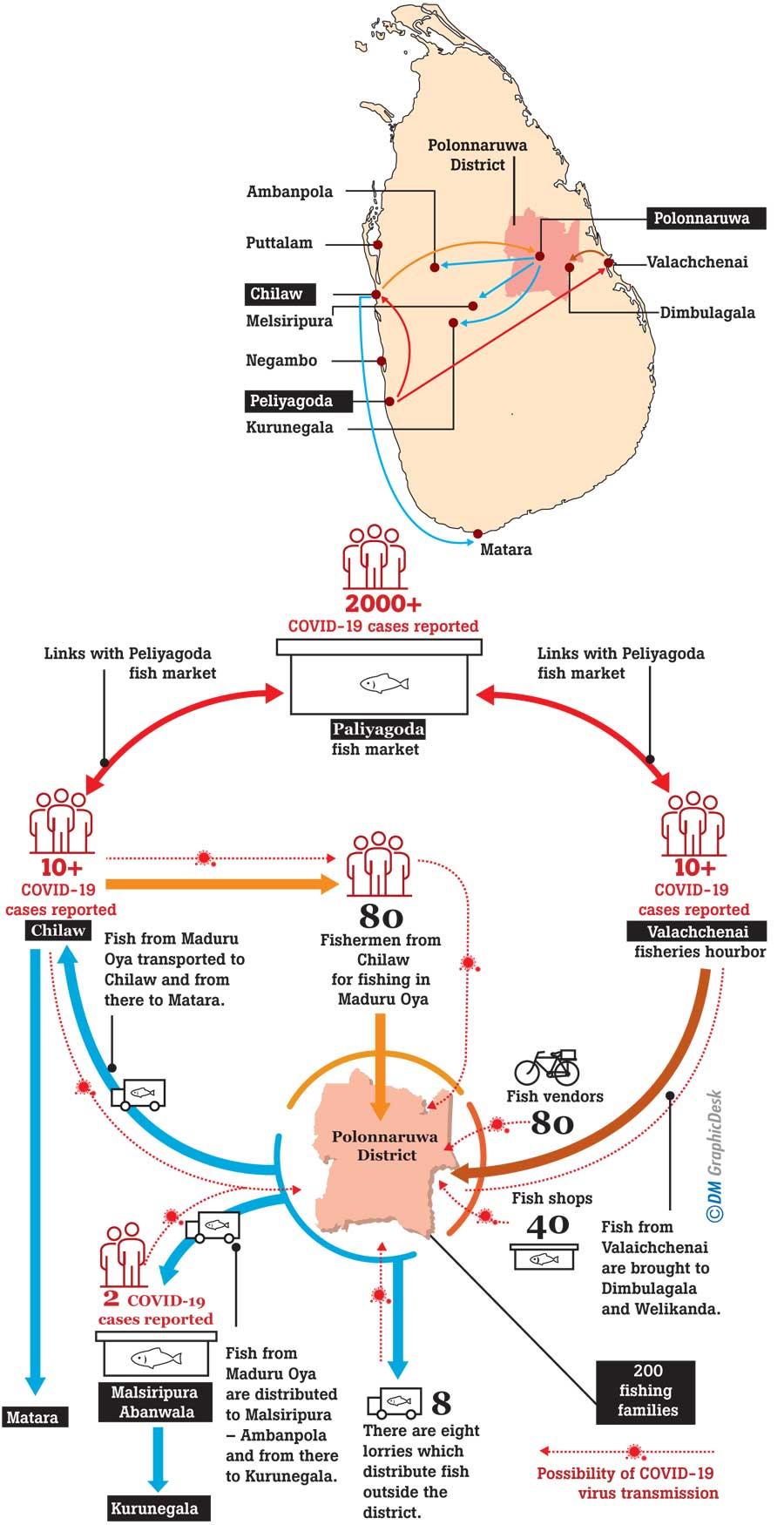
25 Dec 2024 9 hours ago
25 Dec 2024 9 hours ago
25 Dec 2024 25 Dec 2024